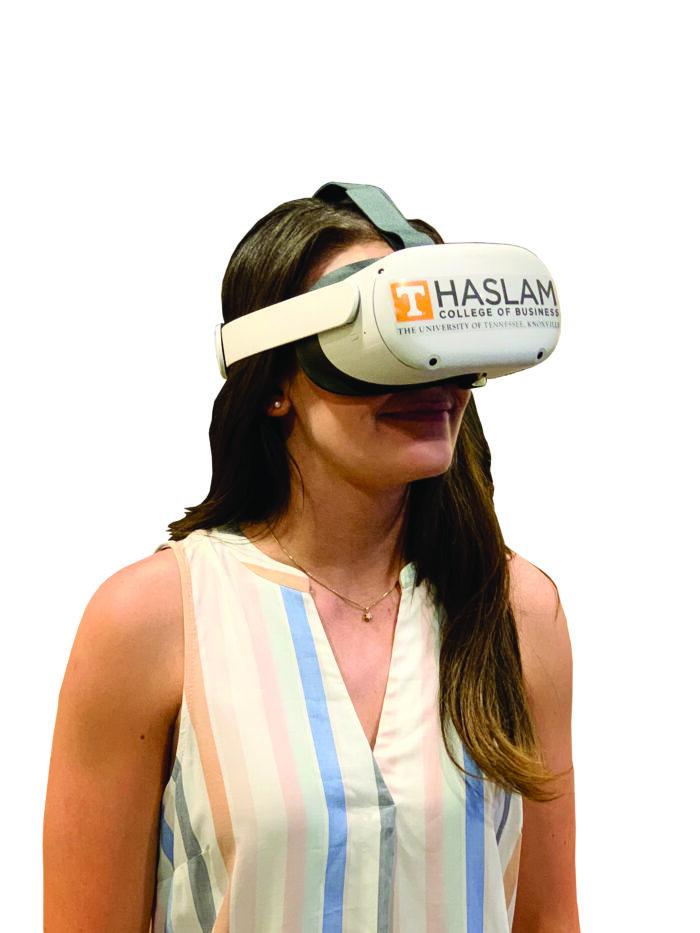Exploring Emerging Tech
Five weeks into each semester, Mark Collins, distinguished lecturer and director of Haslam’s MS in Marketing program, sends virtual reality (VR) headsets home with marketing majors in his 400-level brand management course. For several weeks, the class meets in the metaverse. “We still have lectures, watch videos, and talk with one another just like any normal class,” says Kobe Bouasakhone, a senior in marketing. “It gives us insight into how businesses and people can utilize VR to perform tasks, meetings, and marketing efforts.”

Marketing senior Caitlin Motto says she benefited from the immersive learning experience. “Dr. Collins encouraged us to embrace emerging technologies such as VR and [artificial intelligence] as integral components of the marketing landscape,” she says. “Exposure to these technologies is crucial for business students because it equips us to thrive in today’s business environment.”
To Collins, VR is the Wild West of the marketing world. “As VR becomes more widespread, marketers are trying to figure out how to do product placement and traditional advertising within virtual worlds,” he says (e.g., placing a virtual billboard within a VR environment). “In the early days of the internet, every business realized they needed a website because they couldn’t afford to miss out on that opportunity. That’s where we are with VR today.”
Students can’t afford to miss out on experiencing VR, either. “We’re already to the point where when they think about their toolkit of marketing tools, extended reality is one of those,” Collins explains. “VR might be the best way to reach certain target audiences—but for most marketing executives, it’s not on their radar. Our students will understand it because they have experienced it, putting them ahead of their peers.”
To ensure all students are prepared for a tech-centric business world, Haslam is creating a new undergraduate course: Emerging Technologies in Business. George Drinnon, assistant dean for undergraduate programs, says, “Undergraduates need to understand what these technologies mean and how to leverage them ethically, for maximum benefit and the good of society.”
Other areas incorporating emerging technologies in their curriculum include the Master of Accountancy program, the Executive MBA for Strategic Leadership program, and the online MS in Business Cybersecurity.
Chad Autry, associate dean of faculty and research, Myers Distinguished Professor of Supply Chain Management, and R. Stanley Bowden II Faculty Research Fellow, sees a growing demand for skilled workers who can develop and manage solutions built on artificial intelligence and other emerging technologies. “Our future leaders will need to understand these technologies to help them recruit the right talent and invest in appropriate training for their changing workforces,” Autry says. “If our grads have an understanding of its capabilities, they can leverage it well and get a leg up on competitors.”


